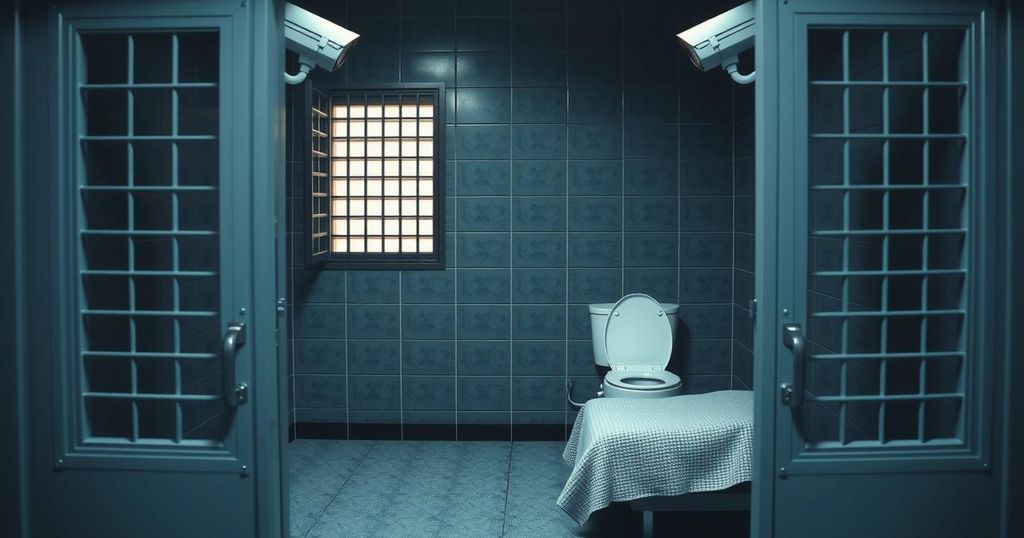Tahawwur Rana Extradition: Key Details on Interrogation Over 26/11 Attacks

Tahawwur Rana, extradited from the US, is now in NIA custody for an 18-day interrogation about his involvement in the 26/11 Mumbai attacks. Securely housed in a monitored cell, his questioning will delve into his background, links to Lashkar-e-Taiba, and connections with the ISI. Investigators aim to gather essential information that could aid in ongoing terrorism-related cases.
Tahawwur Hussain Rana, the accused in the 26/11 Mumbai terror attacks, was extradited from the US to India on Thursday. Following his extradition, the National Investigation Agency (NIA) has begun interrogating him regarding his involvement in the attacks, focusing on various aspects of his background and connections with terrorist organizations. He is currently housed in a secure cell at the NIA headquarters.
Rana is kept in a 14×14 cell located on the ground floor of the NIA headquarters, which includes CCTV surveillance and is monitored by 24-hour guards. Limited access is granted, with only 12 NIA officials allowed entry. His interrogation will explore his personal history, the events of the 26/11 attacks, and any potential affiliations with groups such as Lashkar-e-Taiba and the Pakistani intelligence agency, ISI.
On November 26, 2008, ten terrorists from Pakistan executed a coordinated attack that resulted in the deaths of 166 individuals in Mumbai, lasting nearly 60 hours. Rana’s involvement has been substantiated by David Coleman Headley, who testified about their interactions and Rana’s role in facilitating operations. This probing could unveil crucial intelligence related to terrorist networks.
Maharashtra Chief Minister Devendra Fadnavis highlighted that the decision on Rana’s examination location lies with the NIA and the Union Home Ministry. Following his immediate interrogation, Rana may be transported to Mumbai for further scrutiny.
The inquiry aims to shed light on alleged ties between Rana and the ISI, with investigators focusing on whether Rana had been introduced to ISI operatives by Headley and investigating any logistical support for the attacks. The NIA is particularly interested in Rana’s potential knowledge regarding ISI operational strategies, with questions aimed at uncovering the agency’s involvement.
Investigators will also question Rana about his connections with Lashkar-e-Taiba. Key inquiries will center on his interactions with LeT leadership, support provided, and understanding of the organization’s operations, including training and recruitment processes. A detailed analysis of his communications with Headley is expected to clarify the operational dynamics leading up to the attacks.
As part of the investigation process, Rana will face questioning about his activities leading up to the Mumbai attacks, including his movements in India during November 2008. The NIA will document every aspect of the questioning to ensure it results in legally admissible evidence for the case against him.
Despite his reported health issues, the US courts facilitated Rana’s extradition, concluding that these concerns did not warrant blocking the legal proceedings against him. To address any health-related issues, Rana will undergo medical evaluations every 48 hours during his custody period to ensure his well-being while under investigation.
An initial round of questioning is set to explore Rana’s personal history, detailing aspects of his life before becoming implicated in terrorism. This includes examining any familial awareness of his involvement with Headley and the attacks, as well as understanding his motivations and connections within the terrorist framework.
Overall, the NIA’s investigative efforts aim to clarify Rana’s role in the 26/11 attacks and provide insights into broader terrorist operations linked to Pakistani intelligence and terrorist organizations. This period of interrogation is pivotal in further advancing legal actions against him and enhancing knowledge of potential remaining threats.
The extradition of Tahawwur Rana marks a significant step in continuing investigations surrounding the 26/11 Mumbai terror attacks. His interrogation will focus on understanding his role, connections to Lashkar-e-Taiba, and possible ties with the Pakistani ISI. Documenting his interactions and strategic frameworks within these networks will potentially reveal critical intelligence that could enhance national security efforts in India.
Original Source: www.ndtv.com





